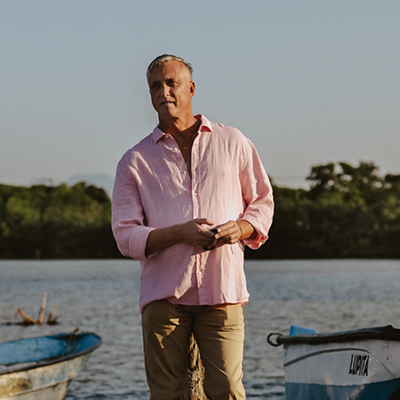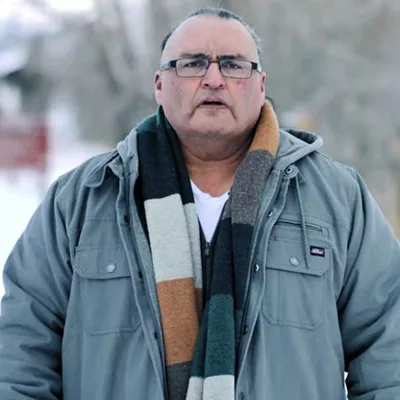For a year, the refugees had been scrambling for safety from Hitler's atrocities. When they got to Lithuania, the Jews there didn't quite believe all their stories of anti-Semitic ethnic cleansing. But by June 1940, marauding armies saw to it that Lithuania's Jewish residents were staying put. In the greatest of ironies, it was the Polish Jews who were able to slip over Lithuania's borders and on through Russia. But they could only leave if they had entrance visas to countries further east.
One man became the linchpin for these Jews' survival. Chiune Sugihara had arrived with his wife, Yukiko, in Lithuania in 1939 to set up a one-man Japanese consulate. Against the wishes of the Japanese government, the Sugiharas stayed on for another month, hand-signing hundreds of visas each day to permit people entrance to Japan. Consul Sugihara even continued issuing documents from his train window until it departed Kovno for Berlin on Sept. 1, 1940.
"When people think of rescuers, they tend to think of Europeans, like Oskar Schindler, not a Japanese man and his wife," says Judyth Lessee. The Catalina High School librarian has been studying Sugihara and the relationship between Jews and the Japanese during the Nazi Holocaust. As a Mandel fellow at the U.S. Holocaust Memorial Museum and recipient of numerous scholarships, Lessee has made several trips to Eastern Europe and Japan--trips that have opened her eyes to the ways in which one man helped thousands of people, but also how the Holocaust is taught in Japan itself.
"I've been interested in the Holocaust for 35 years, since I was a teen. World War II just fascinated me. As a Jew, I was always amazed how so many people--Jewish and otherwise--could be killed while the rest of the world sat by and said, 'Oh, too bad.'"
She adds, "I'm beginning to understand the meaning of the word 'synchronicity.' There's nothing accidental about how things turn out. Especially when you look at someone like Sugihara.
"He wrote 2,139 visas. That allowed whole families to flee to safety. That meant a couple of generations of Jews could be born, survive and prosper. That translates to 40,000 Jews scattered around the world."
Synchronicity sometimes parallels irony, admits Lessee.
"While Japanese-Americans served in the American military, liberating concentration camps at the end of the war, their own families were being interned in camps in this country. The United States was, in some ways, a bystander and could have done so much more."
There's irony, too, in how Sugihara functioned as an arm of his government. "He kind of traveled a gray line, kind of a spy. He was sent to Russia and China and Germany. He had this great facility for languages and exploring other cultures. Ironically, he was sent to Bucharest and was interned there for 17 months. And the biggest irony, or really, sadness, is that when he returned to Japan in 1947, he wasn't deemed a hero."
In fact, he was seen as a disgrace. The Japanese government unceremoniously dismissed him from diplomatic service. His career was shattered. It wasn't until 1985 that Sugihara was recognized for his amazing work--but not by his own countrymen. Yad Vashem Martyrs Remembrance Authority in Jerusalem bestowed upon Sugihara the prestigious award of Righteous Among the Nations. Only now is Sugihara being recognized elsewhere.
"They just unveiled a statue of him in Vilnius and in Little Tokyo in L.A. It's a bit disappointing, now that he's been dead since 1986," adds Lessee.
And the Jews that he saved? Lessee says very few settled in Japan.
"Most of the refugees stayed there for a few months and then went on to Shanghai. From there, they settled in the States or Canada or South Africa or South America. Jews haven't had a significant impact on Japanese culture. There's a synagogue in Kobe, but there's no rabbi--they fly one in for special occasions."
"There is a Sugihara survivor here in Green Valley, though," Lessee adds.
And even more ironic is another local connection. Jan Zwartendijk-- the acting Dutch consul, who, like Sugihara, also defied orders to get out of Lithuania that fateful month in 1940--has a surviving relative in our midst. Zwartendijk's son lives here in Tucson.
Lessee says the legacy of the Nazi Holocaust has a broader impact. "It's a springboard to educating students about other oppressions. It's important to study, but so are events in Ruwanda where in three months, a million people were killed in awful ways or the ethnic cleansing in Bosnia, for example."
Judyth Lessee offers an interactive slide show and lecture about "Jews, Japan and the Holocaust" on Sunday, Aug. 17, at 5 p.m. at Bookman's 6320 E. Speedway Blvd. It's part of the Interfaith Unlearning Racism Task Force series and includes the screening of Chris Tashima's award-winning short film about Sugihara, Visas and Virtue.
The program is free and open to all. Call 299-9063 for details.







